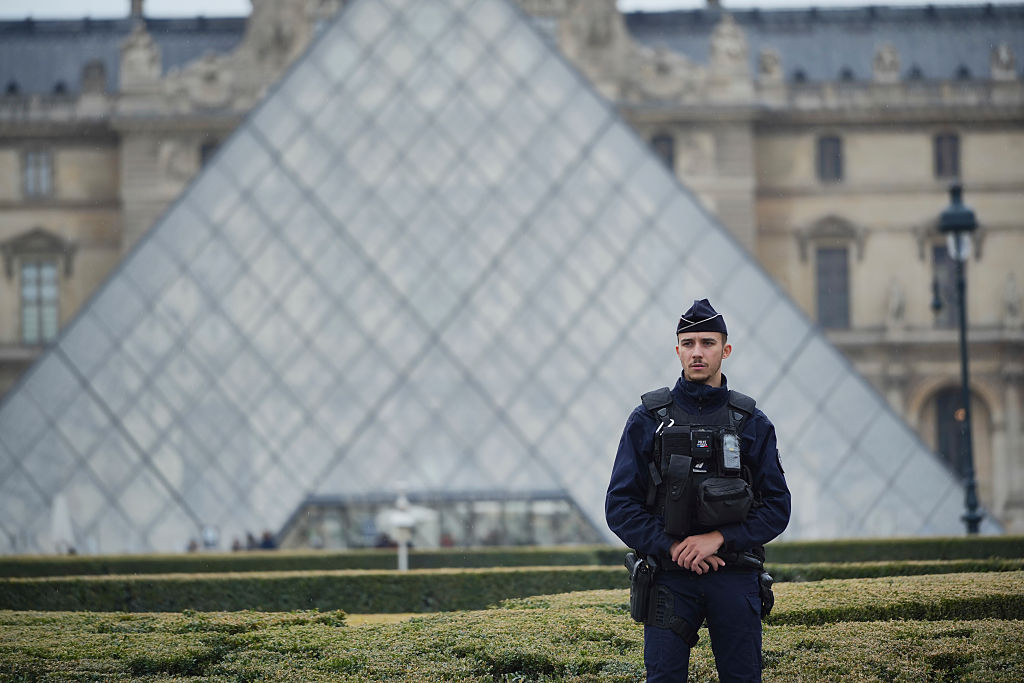Thieves broke into the Louvre in Paris shortly after it opened on Sunday morning and stole nine invaluable relics from France’s crown jewels. While the exact valuation of the loot is still being established, it could be worth hundreds of millions of euros. The thieves used a cherry-picker to reach a window on the Seine side of the building, smashed display cases in the Galerie d’Apollon, the ornate hall built for Louis XIV and home to the crown jewels. They escaped on motorbikes before police arrived. Among the stolen items was the crown of Empress Eugénie, set with 1,354 brilliant-cut diamonds and 56 emeralds. It was later found smashed in the street near the museum, dropped by the thieves in their flight. This was the sort of crude smash-and-grab usually seen in a high-street jewellery raid. The robbery lasted seven minutes.
The embarrassment was beyond measure. France had been robbed of more than its grandeur and its crown jewels. The Louvre, a symbol of France, drawing over ten million visitors a year, now joins the growing list of things the state can no longer protect. Across the country, violence and theft have become ordinary. Shoplifting is out of control and rioting is now run of the mill, including at a shopping centre last week close to the Louvre when a rap concert got out of hand. Every week brings another shock, another reminder that the authorities have lost their grip. For many French, the theft of the crown jewels isn’t an isolated outrage but the logical consequence of a country that’s stopped enforcing the rules. A state that cannot protect its people, its streets or even now its own treasures.
Frustration quickly turned political. The Minister of Culture Rachida Dati rushed to the Louvre upon hearing the news, arriving with police investigators. The Minister of the Interior Laurent Nunez vowed swift arrests, but no progress in the investigation has yet been announced. Jordan Bardella of the National Rally took to X, calling the robbery ‘an intolerable humiliation for our country’ and asking ‘how far will the decay of the State go.’
The heist fused two national anxieties: insecurity and decline. From riots to the Notre Dame to this daylight robbery, the pattern feels familiar: France’s grandeur collapsing into chaos. When the Notre Dame burned in 2019, Parisians wept on the bridges of the Seine, watching a symbol of their civilisation consumed by flames. The feeling now is uncannily similar. Disbelief gives way to shame, pride gives way to helplessness. Recent incidents show this isn’t just a one-off at the flagship museum. Last month thieves made off with gold specimens from the Natural History Museum in Paris. The gold had immense scientific and cultural value, stolen with an angle grinder and a blowtorch. There’s constant theft of relics and artifacts from churches across the country.
It’s not as though there was no warning. The Louvre’s internal audit this spring highlighted staff shortages and ageing alarm systems. The museum had requested urgent funds for security upgrades, but the Culture Ministry was slow to respond. Similar warnings have come from Versailles and the Musée d’Orsay, where night-shift positions have been cut to save costs. France’s cultural flagship was, in truth, undefended. The burglars simply proved it.
The Galerie d’Apollon, with its gilded vaults and imperial portraits, embodies France’s confidence, its sense of permanence. The Louvre robbery comes amid political deadlock, rising crime and the collapse of public trust. It captures an anxiety that the State is no longer capable of protecting anything, not women in the street, not shopkeepers in the suburbs, and now not even the nation’s crown jewels. The national reaction has been a blend of disbelief and shame. A terrible failure that wounds the French morale. The Louvre is not merely a museum, it’s France’s face. And that face has just been slapped.
The French crown jewels survived revolution, exile and empire. They were sold, scattered and partly reclaimed. The jewels that remained were displayed at the Louvre as a symbol of continuity, the Republic’s uneasy truce with its royal past.








Comments